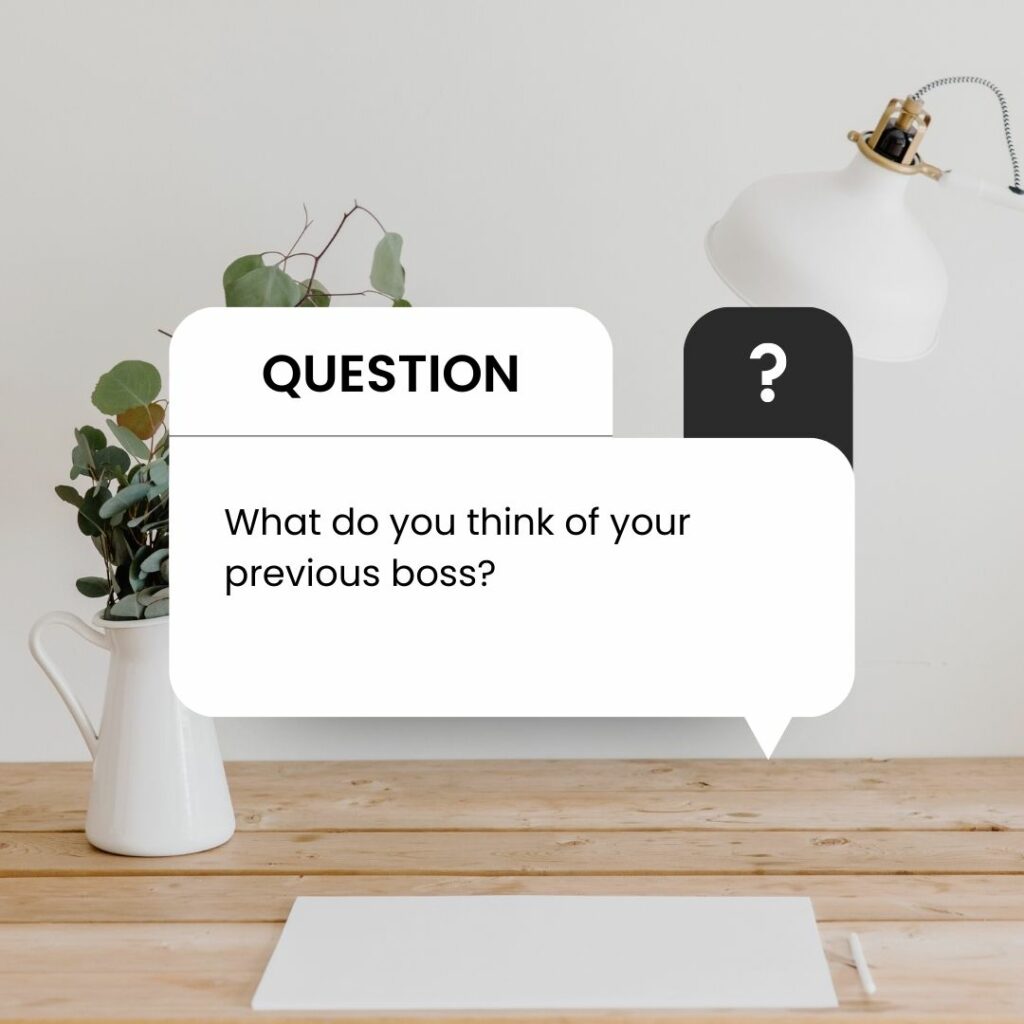How to answer: What do you think of your previous boss?

When job seekers are preparing for interviews, it is crucial to anticipate questions that may arise regarding their previous work experiences. One question that often catches candidates off guard is, “What do you think of your previous boss?” This inquiry aims to assess an individual’s ability to handle difficult situations professionally and their level of respect for authority figures. It is essential for job seekers to approach this question with tact and honesty, as it can provide valuable insights into their work ethic and interpersonal skills.
Reflecting on your previous boss requires a balanced perspective that highlights both positive and negative aspects of the working relationship. It is important to remember that employers are not seeking to uncover personal grievances or engage in gossip; rather, they want to gauge your ability to handle conflicts and maintain professionalism in the workplace. When answering this question, it is advisable to focus on specific instances or qualities that demonstrate your adaptability, resilience, and ability to work well with others. By providing a thoughtful and diplomatic response, job seekers can showcase their maturity and professionalism, ultimately increasing their chances of securing the desired position.

How to Answer a Question: What do you think of your previous boss?
There are actually several ways to approach this question, but let me break it down for you. First, let’s talk about why interviewers ask it and what a typical answer might be. Then, I’ll share with you what the ideal response should be, as well as what makes a good or even a great answer.
And of course, I’ll throw in an extra tip to help you absolutely nail this question. Sound good? Let’s dive in!
Why did the interviewer ask this?
To gauge your professionalism and attitude towards authority figures, and to see if you can provide constructive feedback.
Typical Answer
He was okay.
Wrong Answer
Which one? The one who stole my lunch or the one who never remembered my name?
Good Answer
Highlight positive aspects and, if necessary, provide constructive feedback without getting personal.
Great Answer
I appreciated my previous boss’s hands-on approach and willingness to collaborate. However, there were times when I wished for more consistent feedback on my work.
Last Tip on How to Answer What do you think of your previous boss?
Avoid bad-mouthing or getting too personal. It’s about professional growth, not personal grievances.
If you’re into this tip, you can download 121 Interview Questions and Answers for free! It’s a great way to get more insights on how to answer those common questions in the best way possible.
Practice Your Answers in a Mock Job Interview
Answering this question is a breeze if you know how! But what really counts is practice. The best way to do that? Give mock interviews a shot! You can learn more about mock interviews here, or try out this Free Mini-Interview.
Final Thoughts on the Question: What do you think of your previous boss?
In conclusion, by following these tips on how to answer the question, “What do you think of your previous boss?”, you will be equipped with the confidence and skills necessary to provide a thoughtful and impressive response. Remember to focus on the positive aspects of your previous boss’s leadership style, highlighting their strengths and the valuable lessons you learned from them. By showcasing your ability to adapt and grow in challenging work environments, you will undoubtedly leave a lasting impression on your interviewer.
So, the next time you find yourself faced with this question, embrace the opportunity to demonstrate your professionalism and maturity. Use it as a chance to showcase your ability to find the silver lining in any situation and to highlight the valuable experiences you gained from working with your previous boss. By following these tips, you will not only impress your interviewer but also inspire others with your ability to turn challenges into opportunities for growth and success.

Jan Tegze, author of the bestseller “Full Stack Recruiter” and “Job Search Guide: Be Your Own Career Coach,” has over 15+ years of invaluable experience. Jan’s extensive background in full life cycle recruiting and profound understanding of international sourcing, recruitment branding, marketing, and pioneering sourcing techniques.